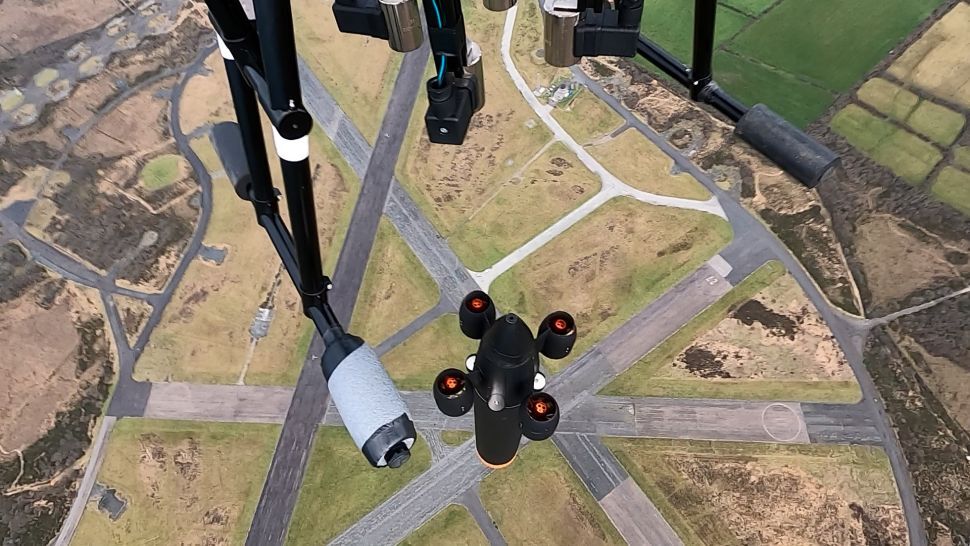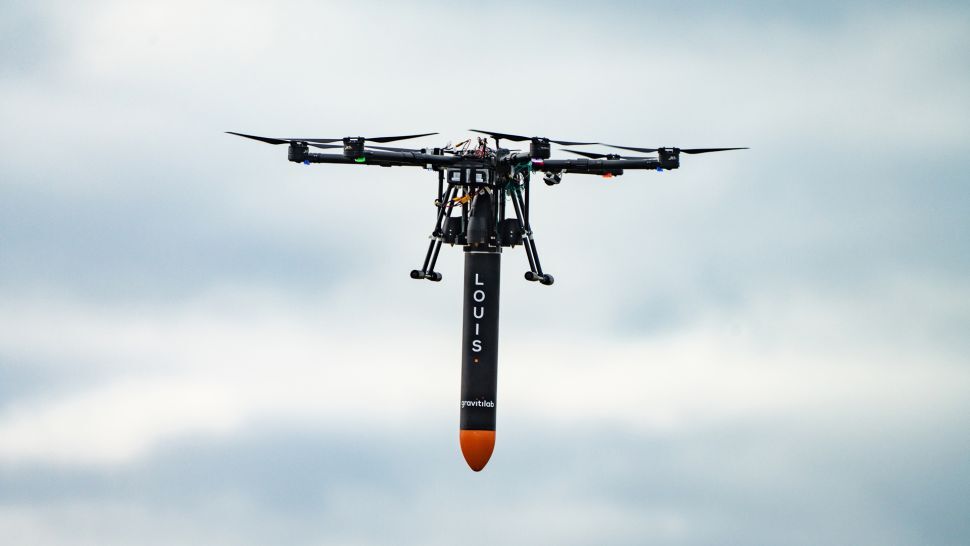4.02.2023
Drones can create much longer microgravity flights than drop towers.
A British startup has performed a first-of-its-kind microgravity experiment using a drone.
The company, called Gravitilab, flew its adapted quadcopter to an altitude of 2,000 feet (600 meters), where it dropped a specially designed capsule carrying scientific experiments.
As the capsule fell toward the ground, its payload experienced over five seconds of weightlessness, which is much more than ground-based drop towers can achieve.
The company, operating from the Predannack military airfield in Cornwall in the southwest of England, plans to start commercial services providing microgravity flight opportunities that have not been available before.
"The only option for terrestrial microgravity testing [in Europe] until now has been to wait several years for access to a drop tower in Germany, which provides two seconds of microgravity," Rob Adlard, CEO and technical director of Gravitilab, said in an emailed statement. "Our service can be delivered locally, is less expensive and as a result of our demonstration flight, we are on target to offer 5 to 20 seconds of high-quality microgravity using our LOUIS UAV [unmanned aerial vehicle] system."

A microgravity capsule being dropped from an adapted quadcopter operated by British startup Gravitilab. (Image credit: Gracitilab)
However, access to the International Space Station is expensive, and Earth-based simulations, including drop towers and parabolic fights on airplanes, are scarce. Gravitilab's technology is the first in the world taking advantage of unmanned aerial technology, company representatives said, and the firm believes it will "open the world of microgravity research to a new market."
"Today's development is a step towards transforming testing across industries from cosmetics to satellites, enabling timely and cost-effective access to gravity-free environments," Gravitilab wrote in the statement.
The company is part of the Cornwall Space Cluster, one of the technology hubs the U.K. government and local authorities support with the aim of growing the country's stake in the global space business. Spaceport Cornwall — from which Virgin Orbit lifted off last month, on what was supposed to be the U.K.'s first orbital launch (the mission failed) — is also part of the endeavor.

"We're thrilled to have been able to support the achievement of this world first in microgravity testing from Cornwall," Gail Eastaugh, Cornwall Space Cluster's director, said in the statement. "Cornwall Space Cluster exists to unlock innovation within the space and aerospace sector, and companies like Gravitilab are paving the way for the future of the industry."
Gravitilab has developed its technology thanks to a U.K. Space Agency grant and is currently in discussions with new investors, the company wrote in the statement.
Blue Abyss, which is building "the world's largest swimming pool" for astronaut training and microgravity simulations underwater, is also a part of the cluster.
Quelle: SC
